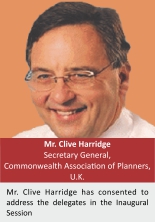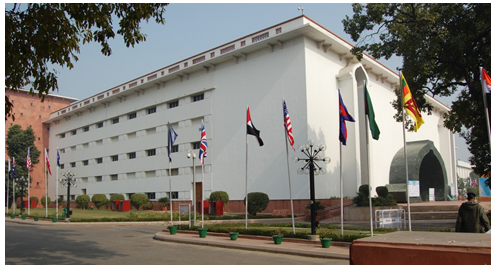responsive slider by WOWSlider.com v8.7




ABOUT THE CONFERENCE |
|||||||||
|
In 2000 only 40 percent population in developing countries lived in cities, which is expected to increase to 56 percent by 2030. Urban population in developing countries will continue to grow at 2.4 percent per year till 2030. According to the United Nations by 2050, the number of people living in cities in India and China alone will grow by 696 million (India 404 million; China 292 million). Half of Asia's and Sub Saharan Africa's population will live in cities by 2030. Over 80 percent of Latin American and Caribbean population will also become urban by 2030. These staggering population figures could be converted into great opportunities resulting in high economic growth, political stability, and social cohesion, if citizens are appropriately educated, fed, clothed, and cared for. Human race could harness demographic dividend by creating equal opportunities for housing, employment, health care, and education for all. Politics of inclusion remains the centerpiece of such policy and planning efforts. However, large cities in large numbers are equally likely to violently shake up the economies and societies of developing countries for the worse leading to global risks like the climate change, hunger, homelessness, and public unrest, if city dwellers are ignored to singularly propel already swelling stocks of capital in few hands. Harmonious, peaceful, economically buoyant, and socially cohesive cities could be produced if built environments are created through fair decision making processes, reasonably equal distribution of resources such as land and housing, and sustainable production and consumption processes and patterns. In fact the twenty first century is the century of the city. The city will dominate most aspects of our lives. Most innovation and wealth creation will happen in cities. City dwellers and diverse activities being carried out in cities will profoundly affect city environments. It appears that all sorts of opportunities, conflicts and challenges will be manifested in the cities. Future of humankind is located in the cities. Modern city civilization will develop or perish in cities depending on how citizens, planners, policy makers, development managers, entrepreneurs, governments, and the third sector join up and work collectively. read more... |
|
|||||||
 |
 |
 |
 |
||||||
Vigyan Bhavan, New Delhi, India
Maulana Azad Road, Central Secretariat, New Delhi, Delhi 110049
Vigyan Bhavan is a premier convention centre of Government of India in New Delhi. Built in 1956, over the years it has been the venue of conferences of national and international stature, seminars and award ceremonies attended by distinguished world leaders and dignitaries. It is managed by the Directorate of Estates, under the Ministry of Urban Development, Government of India, and maintained by CPWD.
Read more






For further information contact:
Prof. Dr. Ashok KumarProfessional Conference Organizer